Introduction
In the realm of healthcare, data security is a critical concern, especially when it comes to Revenue Cycle Management (RCM). Ensuring the protection of sensitive patient information is not only a legal obligation but also essential for maintaining trust and integrity within the healthcare system. For providers in Florida, adhering to state and federal laws regarding data security is vital. This blog explores the importance of data security in RCM and offers practical tips for providers to safeguard patient information effectively.
Why Data Security Is Crucial in RCM
Revenue Cycle Management involves the collection and management of patient service revenue, which necessitates the handling of a significant amount of sensitive data, including patient medical records, billing information, and insurance details. Protecting this data is crucial for several reasons:
- Compliance with Laws and Regulations: Healthcare providers must comply with the Health Insurance Portability and Accountability Act (HIPAA), which sets national standards for the protection of patient information. In Florida, additional state regulations also govern the handling and security of healthcare data.
- Preventing Data Breaches: Healthcare data breaches can result in severe consequences, including financial losses, legal penalties, and damage to a provider’s reputation. Ensuring robust data security measures helps prevent unauthorized access and data breaches.
- Maintaining Patient Trust: Patients entrust healthcare providers with their personal information. Protecting this data is essential for maintaining patient trust and ensuring a positive patient-provider relationship.
- Avoiding Financial Losses: Data breaches and non-compliance with regulations can result in substantial financial penalties. Implementing strong data security measures helps mitigate these risks and protect the financial stability of healthcare organizations.
Key Data Security Measures for Providers in Florida
To ensure data security in RCM, providers can implement several measures that align with both federal and Florida state laws:
1. Implement Strong Access Controls
- Password Protection: Ensure that all systems and devices containing sensitive data are password-protected. Use complex passwords and change them regularly to prevent unauthorized access.
- Role-Based Access: Limit access to patient information based on the role of each employee. Only authorized personnel should have access to sensitive data.
2. Secure Physical Storage
- Lock Cabinets and Offices: Ensure that physical copies of patient records and billing information are stored in locked cabinets and offices. Limit access to authorized personnel only.
- Avoid Storing Charts in Public Areas: Patient charts and records should not be left unattended in public areas or offices where unauthorized individuals can access them.
3. Use Encryption and Secure Networks
- Data Encryption: Encrypt sensitive data both in transit and at rest to protect it from unauthorized access.
- Secure Wi-Fi Networks: Use secure and encrypted Wi-Fi networks for all data transmissions to prevent interception by unauthorized parties.
4. Regularly Update and Patch Systems
- Software Updates: Regularly update software and systems to ensure they are protected against the latest security vulnerabilities.
- Patch Management: Implement a patch management system to quickly address and fix any security vulnerabilities.
5. Conduct Regular Security Audits
- Security Audits: Conduct regular security audits and assessments to identify and address potential vulnerabilities in your data security measures.
- Risk Assessments: Perform risk assessments to evaluate the effectiveness of your security measures and make necessary improvements.
6. Employee Training and Awareness
- Training Programs: Implement regular training programs for employees to raise awareness about data security best practices and the importance of protecting patient information.
- Phishing Awareness: Educate employees about phishing attacks and how to recognize and report suspicious emails or activities.
Florida State Laws on Data Security
In addition to federal regulations, Florida has specific laws governing data security and breach notifications. The Florida Information Protection Act (FIPA) requires businesses to take reasonable measures to protect and secure personal information. In the event of a data breach, organizations must notify affected individuals and the Florida Department of Legal Affairs promptly.
Conclusion
Safeguarding data security within Revenue Cycle Management is more than just a legal obligation for healthcare providers in Florida—it is essential for maintaining patient trust, ensuring compliance, and protecting the financial health of organizations. By implementing strong access controls, securing physical storage, utilizing encryption, regularly updating systems, conducting audits, and educating employees, providers can effectively minimize risks and enhance their data protection strategies. Adhering to both federal and state laws, such as HIPAA and FIPA, not only protects sensitive patient information but also preserves the integrity and reputation of the healthcare system. Prioritizing data security ensures a secure and efficient RCM process that fosters patient trust and safeguards the organization’s financial stability.

We’ll be an extended part of your team
In the realm of healthcare, data security is a critical concern, especially when it comes to Revenue Cycle Management (RCM). Ensuring the protection of sensitive patient information is not only a legal obligation but also essential for maintaining trust and integrity within the healthcare system. For providers in Florida, adhering to state and federal laws regarding data security is vital. This blog explores the importance of data security in RCM and offers practical tips for providers to safeguard patient information effectively.
